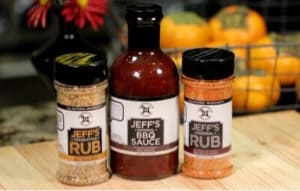In pressure canning of fish and fowl, you must account for your elevation/altitude above sea level to achieve the safe cooking temperatures to kill the harmful bacteria. Is the same true for regular cooking of meats or fish in a smoker? I’ve never seen that in a recipe or in my manuals for my Bradley smoker or my CC pellet grill. Any thoughts or links to previous discussions on this subject?
The reason I ask is that a friend told me he pulls his brisket/pulled pork cooks at 195 instead of 200-205 because we live at 4200 MSL. I never heard or read that before and kind of think it is not valid. So, what say you?
The reason I ask is that a friend told me he pulls his brisket/pulled pork cooks at 195 instead of 200-205 because we live at 4200 MSL. I never heard or read that before and kind of think it is not valid. So, what say you?




